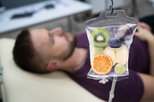The adolescent years can be tough for both teenagers and parents. Amid experiencing rapid physical, emotional and cognitive changes, teens are also trying to figure out who they are and where they fit in the world.
Many teens make it through unscathed, but others find themselves struggling with things like anxiety, depression, peer pressure, eating disorders, behavioral issues or substance abuse. Sometimes, the issues become problematic enough that it may be best for the teen if the family reaches out to the community for help.
Important Signs to Look Out For
Substance abuse among teens has remained steady throughout the years. With peer pressure and mainstream media promoting alcohol use, many teens think they are not susceptible to becoming addicted. They freely experiment and binge on alcohol or drugs oblivious to the fact that they can wind up establishing habits that lead to addiction.
If you are concerned your teen may be abusing substances, here are a few signs you can look out for:
- Spending more time with peers who are known for partying
- Losing interest in activities he or she once enjoyed
- Not being able to get up for school or dropping grades
- Becoming distant and avoiding conversation with parents or family
- Experiencing bouts of depression
- A decrease in personal hygiene
- Being secretive and not allowing anyone in his or her room
- Disrupted sleep habits
Getting Help for Your Teen
Most adolescents won’t like the idea of going to treatment for substance abuse, so it’s important to think about this and do a bit of research before approaching them. Make sure you exercise the following when you open up the topic:
- Include him or her in the conversation. If you’re one-sided and threatening when it comes to language, he or she is more likely to put a wall up or become very defensive. If you can, steer clear from using terms like “mental” and “therapy” because many teens view these terms negatively. The term “counseling” tends to go over better.
- Be open and honest. When you approach your teen, be open and honest about your concerns, but do so in a safe and gentle way. If you come at them with negative energy brewing, they’ll be more likely to become rigid, angry and defensive.
- Ask your teen for help. Offer your teen the opportunity to help in finding a suitable counselor or addiction specialist. This enables him or her to feel like they are part of the process. You can find plenty of available options here.
- Offer unconditional love. Do your best to offer your teen unconditional love, regardless of how the conversation about substance abuse goes. Of all the things you can do for your teen, this step goes a long way.
If you think your teen is struggling with an alcohol or drug addiction, it’s time to have a heart-to-heart conversation. Be compassionate, non-judgmental and have some treatment options in mind. When you provide them with more than one option, it will help make them feel like they’re in control of the situation, which is very important to someone of this age. Don’t simply dictate what will occur in their life. Rather, allow them to speak freely and really hear them out before a final decision is made regarding their treatment.
If you, your adolescent child or someone you know is seeking help from substance addiction, please visit our directory of teen treatment centers or call 800-891-8171 to start the path to recovery today.








